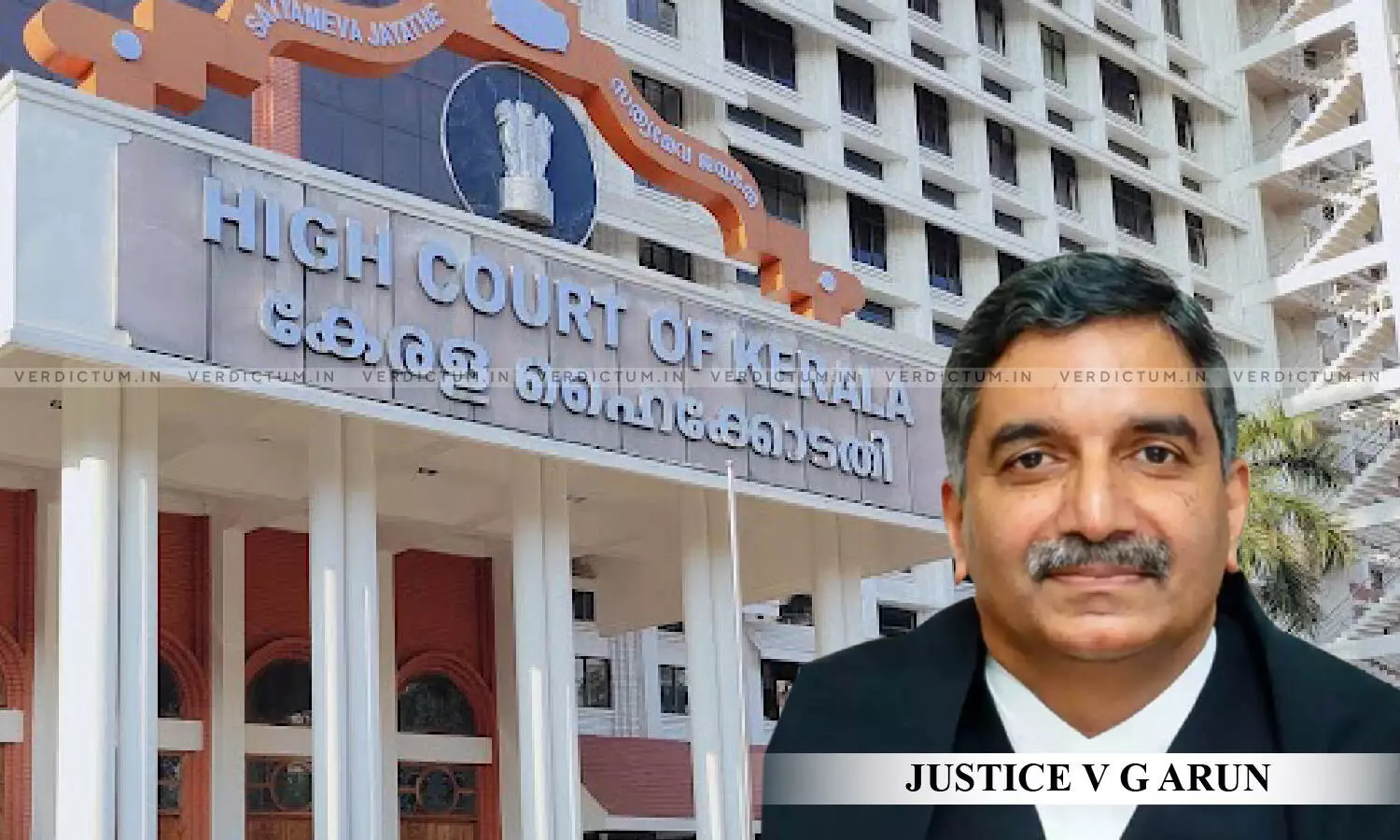
Unilateral Affirmation Of A Jurisdiction Clause By A Party To Contract Without It Being Specifically Accepted By Other Party Won’t Confer Exclusive Jurisdiction On Any Court: Kerala HC
 |
|The Kerala High Court observed that the unilateral affirmation of a jurisdiction clause by a party to the Contract without it being specifically accepted by the other party will not confer exclusive jurisdiction on any court by overlooking the conferment of jurisdiction based on cause of action stipulated in Section 20(c) of the Civil Procedure Code (CPC).
The Court was deciding a civil revision petition filed by a company being a defendant in a suit filed by the plaintiff company seeking to realise a sum of Rs. 8,69,836/- from the defendant along with an interest at the rate of 18% per annum.
A Single Bench of Justice V.G. Arun observed, “In Unneerikutty (supra), this Court has held that the words printed at the bottom of the letterhead with respect to jurisdiction cannot be treated as a special contract conferring exclusive jurisdiction on the court mentioned therein. The reasoning being that, ouster of jurisdiction of courts cannot be lightly assumed or presumed and a unilateral affirmation by one of the parties to the contract, without the same being specifically accepted by the other party, will not confer exclusive jurisdiction on any court by overlooking the conferment of jurisdiction based on cause of action stipulated in Section 20(c) of the Code.”
The Bench added that the printed words 'subject to Cochin jurisdiction' does not confer exclusive jurisdiction on the courts at Cochin.
Advocate Parvathi Menon appeared on behalf of the revision petitioner while Advocate Manu Roy appeared on behalf of the respondent.
Brief Facts -
In 2016, the defendant expressed interest in hiring one Crawler Mounted Crane having capacity of 165 MT from the plaintiff for engaging in their project site in Chhattisgarh. After negotiations, the defendant issued a purchase order containing the commercial terms and conditions for hiring the Crawler Mounted Crane. The purchase order was accepted by the plaintiff with certain modifications and the crane was given on hire and thereafter, the defendant failed and neglected to pay the hire charges, even after issuance of repeated demand notices. On receipt of notice in the suit, the revision petitioner entered appearance and filed an application, praying to return the plaint for presentation before the court in which the suit should have been instituted.
It was contended by the revision petitioner that the Munsiff Court, Ernakulam lacks territorial jurisdiction since no part of the cause of action had arisen at Ernakulam. It was further contended that, as per Clause 17 of the terms and conditions of the purchase order, only the courts in Secunderabad, Hyderabad, Telangana State have jurisdiction with respect to the disputes arising out of the agreement. The plaintiff filed counter affidavit, contending that, in the letter issued in reply to the purchase order, amendments with respect to the working hours and payment of hire charges had been suggested and the revision petitioner had not objected to those amendments. In the reply letter, it was also specified that the actions of the plaintiff would be subject to Cochin jurisdiction alone. The Munsiff, after detailed consideration, dismissed the application seeking return of plaint, finding the contention regarding lack of territorial jurisdiction to be untenable.
The High Court in view of the facts and circumstances of the case said, “… the courts have to examine the evidence and find out whether, in the facts and circumstances of the case, the conduct of the offeree amounted to unequivocal acceptance of the offer made. If the facts disclose that there was no reservation in the acceptance by conduct, it follows that the offer has been accepted.”
Furthermore, the Court noted that if the evidence discloses that the offeree had reservation in accepting the offer, his conduct may not amount to acceptance of the offer in terms of Section 8 of the Contract Act and that the available documents does not reveal consensus between the parties with respect to the conferment of jurisdiction on any particular court/s.
“Yet another aspect of importance is the absence of words like “alone”, “only”, “exclusive” or “exclusive jurisdiction” in Clause 17 of the terms and conditions. In the absence of proof regarding consensus as to the jurisdiction, either implied or by conduct, the maxim “expressio unius est exclusio alterius” has no application”, it also said.
The Court concluded that the court below was justified in rejecting the prayer for return of the plaint.
Accordingly, the High Court dismissed the revision petition.
Cause Title- Sangha Erectors Pvt. Ltd. v. Laxmi Cranes and Trailers Pvt. Ltd. (Neutral Citation: 2024:KER:1549)